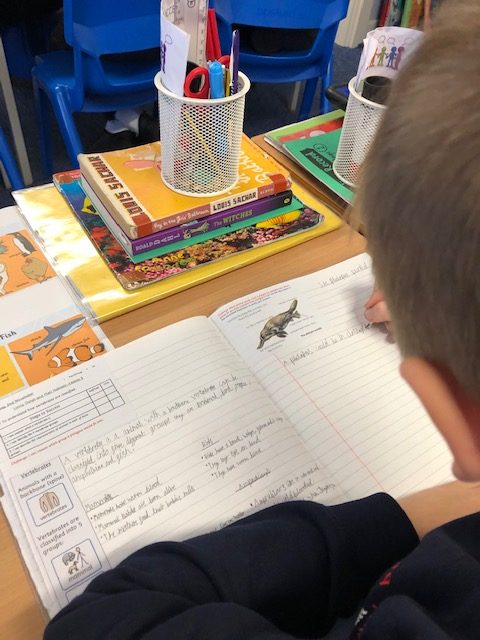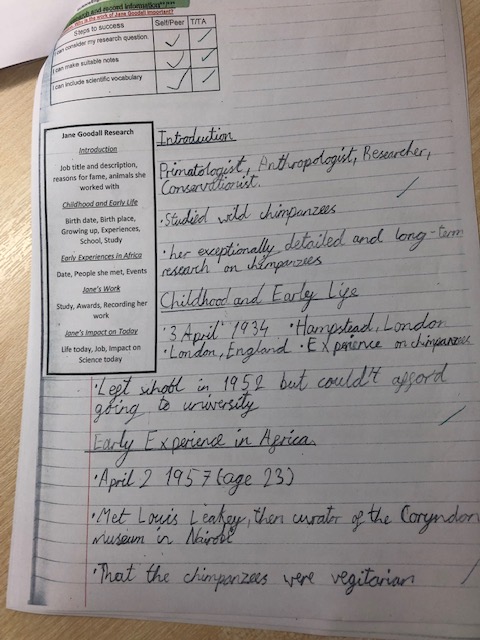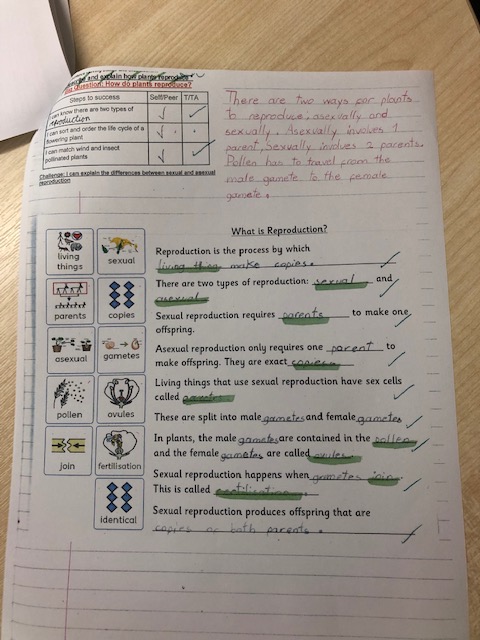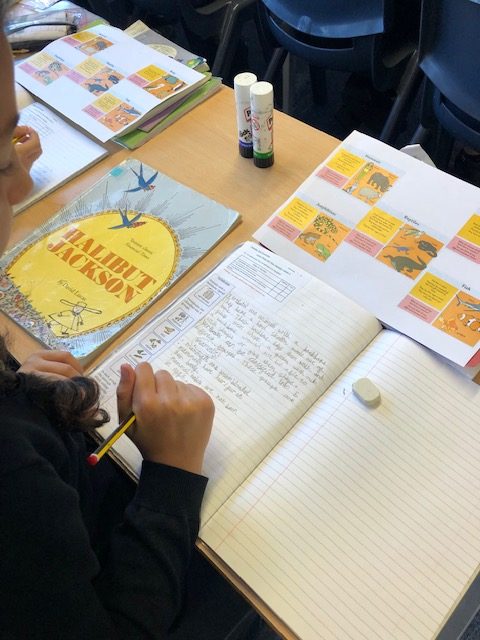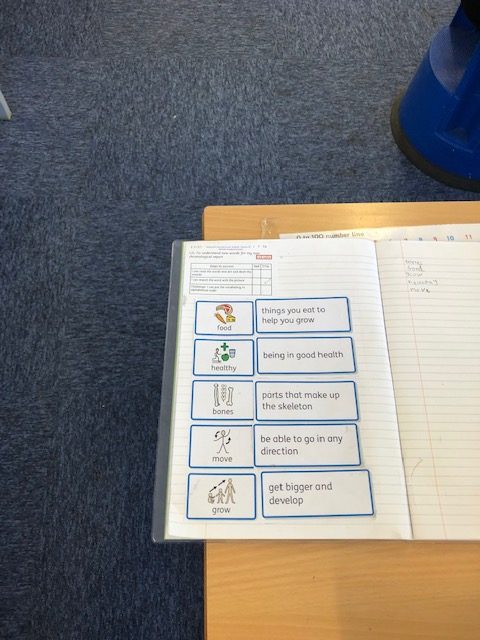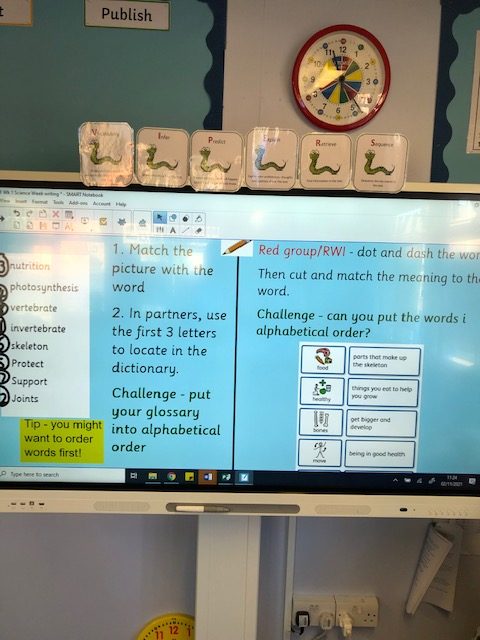High quality approach to monitoring and evaluating pupils’ work, getting to the heart of reflective thinking about what will make an impactful difference to pupils’ learning and ensure long-term retention of acquired knowledge and vocabulary for pupils. Approach involves use of pupils’ books and structured interviews with pupils, enabling them to accurately articulate their learning.
Our Approach
#389 Pupil Book Study – Handford Hall Primary School
Helen Caston
What did we do?
“Using the Big Question and vocabulary stickers in my books really help me to think about my learning on a deeper level. I feel more confident to talk about what I have learnt and this really improves my writing too.”
A pupils’ ability to make links between different religions and articulate their understanding was truly impressive.
Summary of impact
- 90% of teachers report improved confidence in supporting pupils to use advanced vocabulary, as compared to an initial baseline.
- 90% of teachers report improved knowledge and understanding of how to support pupils to use advanced vocabulary, as compared to an initial baseline.
- 80% of teachers are able to provide concrete examples of strategies they have employed to support pupils with their vocabulary and oracy skills.
Steps taken
A whole school approach to modelling writing was applied – using discourse markers to sequence ideas, applying tier 2 and 3 vocabulary appropriately; using a variety of sentence openers for effect. Pupils were given structured opportunities to analyse, define, connect and use words in context. Teachers focused on using and displaying Tier 2 (multiple meaning or high frequency) and Tier 3 (subject specific vocabulary) within vocabulary organisers in books. Explicit vocabulary instruction was embedded in all lessons and assessment focused on evidence of this in pupils’ written and spoken outcomes.
Teachers embedded retrieval practise in the form of quizzes and specific opportunities planned for children to demonstrate what they know on a regular basis.
The pupil book study approach involves the use of pupils’ books and structured interviews with pupils, enabling them to accurately articulate their learning. Study Sessions took place once per half term, phase Lead/SLT staff co-planned and taught with teachers to model effective strategies. Regular staff discussions regarding progress and sharing good practise took place during monthly phase meetings and a fortnightly whole staff meeting. Monitoring of implementation through termly book scrutiny and classroom environment learning walks evidence that knowledge notes and scaffolding are used across the curriculum. Pupil interviews evidence that children retain subject/topic specific vocabulary and can connect with new concepts .
What would we do differently
The importance of careful preparation for pupil interviews cannot be over-estimated! Broadening discussion to focus on comparison and attitudes and move children’s thinking away from the scaffolding and transcriptional elements to really evidence depth of understanding and critical thinking.
Cost
CPD and Book Study Sessions – 3 x 2 hour Pupil Book Study Training sessions with Alex Bedford – Funding: £210 x 3 (£630).
Phase Lead/SLT staff to co-plan, co-teach with teachers and model effective strategies (1 x per fortnight for each class teacher) Funding: £570 to contribute towards backfill funding to free up staff to undertake this. School Improvement Plan visit to be conducted by external assessor to validate the effectiveness of the Pupil Book Study Approach and ensure alignment with Ofsted’s inspection requirements. Funding: £800 to fund 1 visit.
